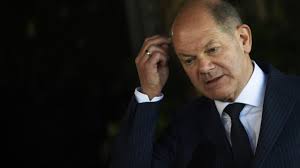
BRUSSELS, Oct 18 (NNN-AGENCIES) — Britain and the European Union reached a new divorce deal Thursday that could allow Brexit on Oct 31, but faced immediate opposition among MPs in London — who could still block it.
The deal was sealed just hours before a summit of EU leaders that is
expected to endorse the text, but it must pass the British parliament when it
meets on Saturday.
British Prime Minister Boris Johnson, who has staked his premiership on
leaving the EU at the end of this month, said he had secured a “great new
deal that takes back control”.
European Commission chief Jean-Claude Juncker said: “It’s a fair and
balanced agreement for the EU and the UK and it is testament to our
commitment to find solutions.”
The deal is a victory for Johnson, who took office in July promising to
end Britain’s membership out of the European bloc in line with the result of
a 2016 referendum.
He vowed to renegotiate a previous text that MPs rejected three times, or
take Britain out of the EU with no deal on Oct 31.
But it could quickly turn to defeat if the House of Commons refuses to
endorse the deal when it meets for a special sitting on Saturday — and the
omens are not good.
The pound surged on news of the deal before losing ground over doubts that parliament will approve it.
The Northern Irish party on whom Johnson’s Conservatives depend in
parliament, the Democratic Unionist Party (DUP), said it “will be unable to
support these proposals”.
“These arrangements would not be in Northern Ireland’s long term
interests,” it said.
Britain’s main opposition Labour leader, Jeremy Corbyn, also urged MPs to
reject it.
“The deal he’s proposed is heading Britain in the direction of a
deregulated society and a sell-off of national assets to American
corporations,” Corbyn told British broadcasters.
The draft agreement was forged just weeks before Britain was due to leave
the bloc, ending more than four decades of close economic and political ties
with its nearest neighbours.
Weeks of tense negotiations focused on changing the arrangements to keep
open the border between British Northern Ireland and EU member Ireland.
Chief EU negotiator Michel Barnier said: “We have managed to find
solutions that fully respect the integrity of the single market.
“We created a new and legally operative solution to avoid a hard border,
and protect peace and stability on the island of Ireland.”
But the DUP made clear it had concerns about the arrangements for giving a say to devolved authorities in Belfast, as well as the plan to see Northern
Ireland remain under EU customs and Value Added Tax (VAT) rules.
Johnson reassured Juncker he could get the deal through parliament, when
the two men spoke on the telephone earlier Thursday, Barnier said.
French President Emmanuel Macron told a meeting of centrist leaders in
Brussels that he was “reasonably confident it can be ratified by a vote of
the British parliament”.
Responding in English to a British journalist, he added: “I’m not your
prime minister. This is [up to] your prime minister to deliver now a vote at
your parliament.”
Britain and the EU reached a divorce deal in November last year but it was
rejected by the House of Commons three times, mainly over objections to the Irish border plans.
All sides agree they do not want the return of infrastructure on the
frontier, to avoid exacerbating tensions over Britain’s control of Northern
Ireland that caused decades of deadly violence up until the 1990s.
The previous “backstop” would have effectively kept the UK in the EU’s
customs union if and until another way was found to avoid checks on the
Northern Ireland-Ireland border.
The new plan would see Northern Ireland remain British legal territory but
trade under EU regulations.
But, because it would involve some customs and tax checks with the rest of
the UK, it raised the hackles of the DUP.
Local authorities would be given a new say, with Northern Ireland’s
regional assembly given a vote every four years on whether to maintain the
arrangements.
If the assembly votes them down, Barnier explained, there will be a
“cooling-off period” of two years to work out what to replace them with.
But the DUP warned that did not go far enough.
If Johnson cannot get his own deal through by Saturday, he will be forced
by law to ask the EU to postpone Brexit — the third time it will have been
delayed.
He has repeatedly said he will not do that. — NNN-AGENCIES




